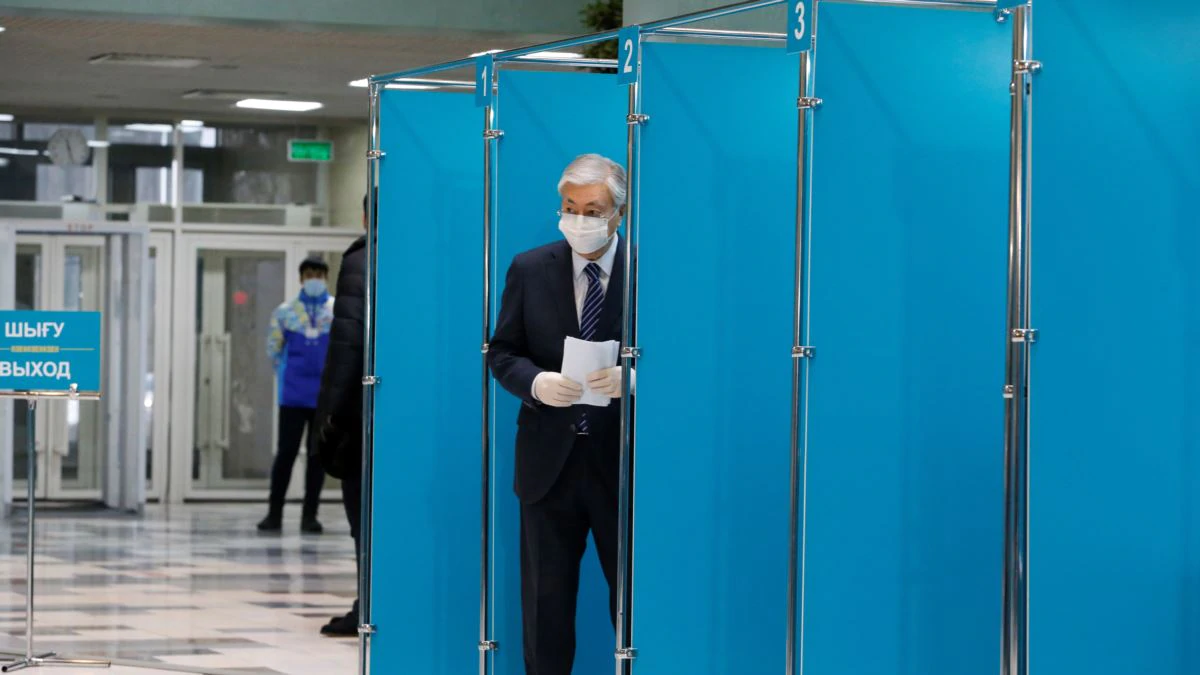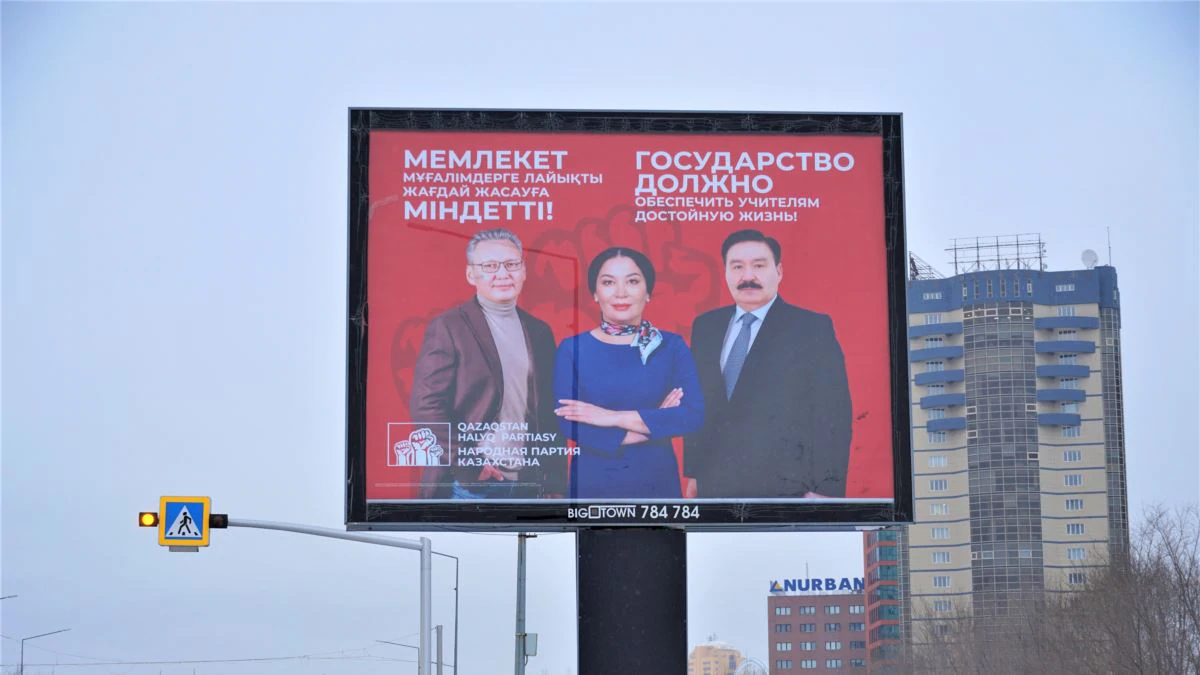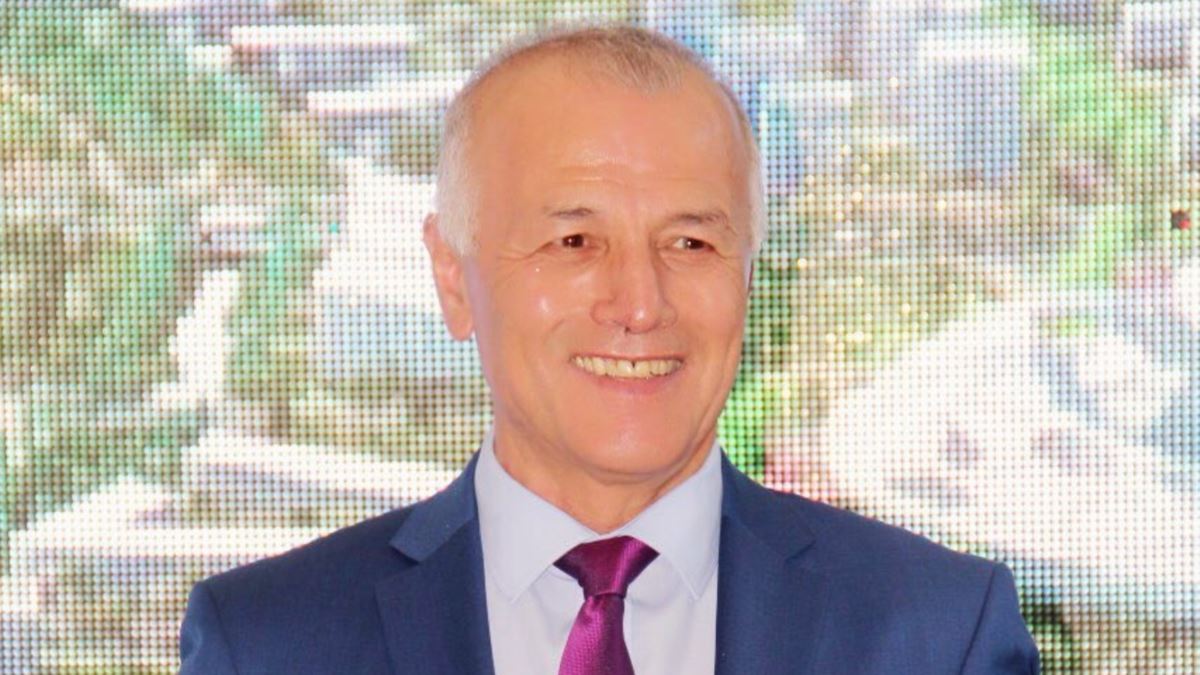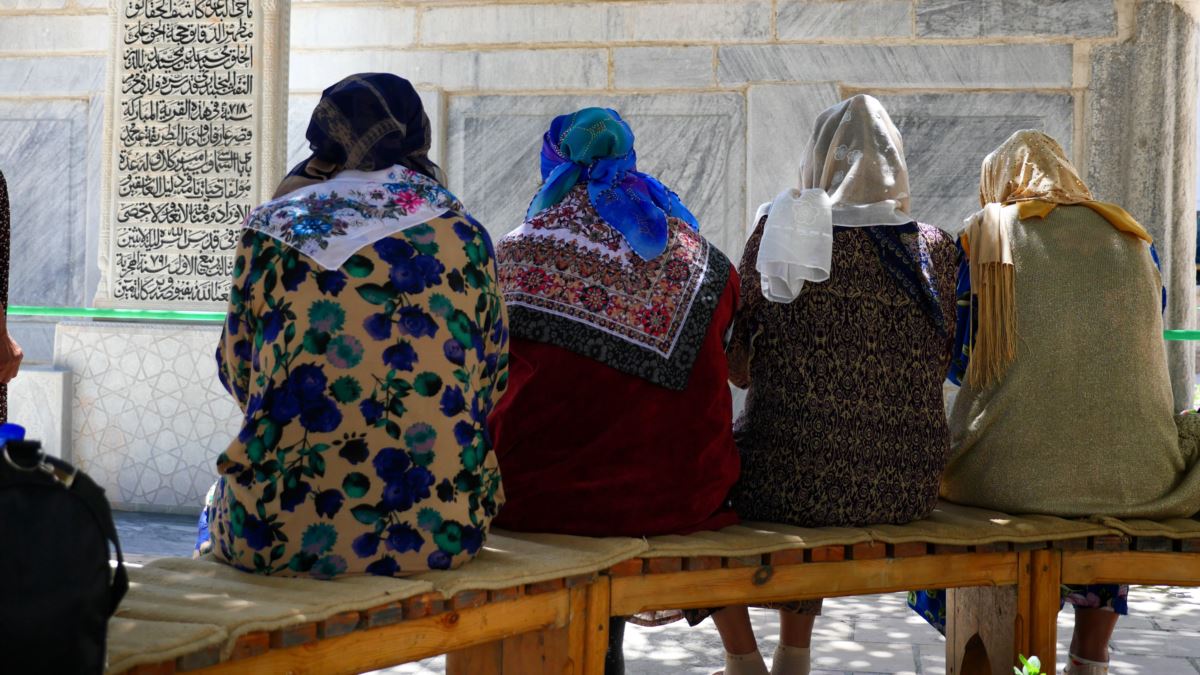Kazakhstan and Kyrgyzstan are holding elections on January 10, the results of which will inevitably be unpopular with segments of the two countries’ populations before and after election day.
Kazakhstan’s Nur-Otan party, created in 1999 to keep Nursultan Nazarbaev in power and still headed by the now former president, is expected to retain its omnipotent position in parliamentary elections.
In Kyrgyzstan, Sadyr Japarov is also expected on January 10, 2021, to formalize his meteoric rise from prisoner to president in barely three months and will likely enjoy greater powers than previous Kyrgyz presidents as the country also votes on a referendum to move from a parliamentary system of government back to a presidential one.
Such outcomes are already unpalatable to many people in both countries, but those who seem sure to win in these upcoming elections are connected to recent scandals that are tarnishing the image of their countries and providing their opponents with additional reasons to reject the results of these polls.
That will almost surely result in a rise in tensions in Kazakhstan and Kyrgyzstan.
Same Old, Same Old In Kazakhstan
Nur-Otan is the party of first Kazakh President Nazarbaev and, as mentioned, has been since the day it was created. The party was originally called Otan, which means “Fatherland,” but in December 2006 party members decided to add Nur (radiant) to the title, which certainly emphasized whose party it was.
Nur-Otan has won the majority of seats in every election it has participated in; from the first in 1999, when the party won 23 of 77 seats available to the last election in 2016 when the party won 84 of 98 seats at stake.
It would be remiss not to recall the party’s greatest victory, in 2007, when Nur-Otan took all 98 of the seats, leaving the other six token parties participating in those elections out in the cold.
It is also important to note that Western election observers have not ever deemed a presidential or parliamentary election in Kazakhstan as “free and fair.”
With such a background, it is fair to assume the Nur-Otan party will prove equally successful on January 10.
It will, however, be the first time the party is running without Nazarbaev as president.
Nazarbaev stepped down from office in March 2019.
His chosen successor, Qasym-Zhomart Toqaev, is officially the president, though many believe Nazarbaev still runs the country.
The transfer of the presidential office has made little difference in the style of governance in Kazakhstan, but it did reinvigorate a largely dormant opposition in the country that hoped a change in presidents would also lead to a change away from the authoritarian ways of Nazarbaev.
There have been visible signs of discontent ever since Toqaev took over, including some of the biggest demonstrations Kazakhstan has seen in some 20 years.
One of the candidates from Nur-Otan in the upcoming elections is Darigha Nazarbaeva, the unpopular daughter of Nazarbaev.
She was the chairwoman of Kazakhstan’s Senate, the position next in line to the presidency (having taken over for Toqaev when he moved to the president’s office) until May, before scandals surrounding her brought much unwanted international attention on Kazakhstan.
There were reports in foreign media about expensive property she and her oldest son Nurali owned in Britain, including one building that served as the address of the famous fictional detective Sherlock Holmes.
And her younger son, Aisultan, who had drug-abuse problems, had taken to posting on social networks again at the start of 2020, claiming once that his father was really Nazarbaev, who is his grandfather, and also alleging that someone in his family wanted him dead.
It was not the first time Nazarbaeva had to leave the political scene.
She also took a hiatus from politics after she divorced her first husband, Rakhat Aliev, in 2007 and she stayed away while her former husband hurled serious accusations from self-exile in Europe about the corrupt and criminal practices of Nazarbaev and his government. She only returned as a candidate for Nur-Otan in the 2012 parliamentary elections.
Her ex-husband Aliev died under mysterious circumstances while being held in an Austrian prison in 2015. Officially ruled a suicide, there were many credible reports that suggest Aliev was killed.
Her son, Aisultan, died of a heart seizure allegedly caused by cocaine usage in August of this year.
But it seems Darigha is now returning to politics.
Timur Kulibaev is the husband of Dinara Nazarbaeva, ex-President Nazarbaev’s second daughter.
It is well known that Kulibaev is rich and he and Dinara are regularly listed as being among the wealthiest people in Kazakhstan.
On December 4, the Financial Times reported Kulibaev received millions of dollars from a pipeline scheme involving purchases of steel from China that went to Ukraine and Russia for processing into pipeline segments that were sold to companies building the Central Asia-China natural-gas pipelines.
The report only mentioned $53 million and some people think Kulibaev has made a lot more shady money than that in his far-flung business dealings. But the report in the Financial Times again brought unwanted attention on Kazakhstan.
On December 9, Kulibaev called on Kazakhstan’s prosecutor-general to investigate these allegations, though it is difficult to say who would be persuaded by Kulibaev being cleared by Kazakhstan’s Prosecutor-General’s Office.
Is Darigha Nazarbaeva returning to politics?
And there is Nazarbaev’s longtime friend, Bulat Utemuratov, whom one of the diplomatic cables published by WikiLeaks said was rumored to be Nazarbaev’s “personal finance manager.”
On December 1, The Wall Street Journal reported the Business and Property Courts of England and Wales had ordered some $5 billion in assets to be frozen “including stakes in luxury hotels, cash in bank accounts in half a dozen countries, and a Burger King franchise” that are connected to Bulat Utemuratov.
The assets are part of a legal battle that involves an opposition figure in exile, fugitive banker Mukhtar Ablyazov, who has been “pursuing a personal feud against Nazarbaev” for a decade.
The coronavirus global pandemic has hurt economies around the world and Kazakhstan has been no exception.
It has been a tough year for many in Kazakhstan and all these reports of millions and billions of dollars belonging to a few people all connected with Nazarbaev will not engender much goodwill toward the first president, his family, and his friends.
But regardless, on January 10, Nazarbaev’s Nur-Otan party is going to again win the most seats in parliament and his daughter, Darigha, seems sure to return to the country’s political scene.
Worries In Kyrgyzstan
Kyrgyzstan’s situation is more complicated.
January 10 will mark slightly more than three months since Kyrgyzstan conducted parliamentary elections (October 4) that were marred by allegations of vote buying and the use of administrative resources that led to unrest in the capital, Bishkek, and saw a crowd storm state buildings and bring down the government, eventually including the president.
A huge void was created and a group that played no role in bringing down the government came to power with Sadyr Japarov — freed from prison one day after the elections — becoming the apparent leader.
How Japarov went from a prison cell, where he was serving time for hostage-taking, to being appointed prime minister and then, simultaneously acting president, in barely two weeks is a question still being debated but he clearly had support from influential people in Kyrgyzstan. Many believe much of that support came from organized criminal groups.
Raimbek Matraimov, a former deputy chief in Kyrgyzstan’s Customs Service, is suspected of being one of the leading criminal figures in the country and his connection to the Mekenim Kyrgyzstan party that took the second-largest amount of votes in the October 4 parliamentary elections helped fuel the unrest that led to those results being annulled.
Matraimov and some of his family members and business associates have been the subject of several lengthy investigative reports from the Organized Crime and Corruption Reporting Project (OCCRP), Kyrgyzstan’s Kloop media outlet, and RFE/RL’s Kyrgyz Service, known locally as Azattyk.
Their latest reports on the Matraimovs were released on December 14.
After becoming prime minister, Japarov vowed to crack down on organized crime and Matraimov was taken into custody on October 20, though quickly released and put under house arrest.
According to the investigative reports, Matraimov was a central figure in a smuggling and money-laundering scheme in which hundreds of millions were funneled from Kyrgyzstan, and there is testimony alleging he may be connected to some murders linked to the major money-laundering scheme. He has denied those charges in comments to RFE/RL.
Japarov said in an interview on October 21 that there is nothing to be gained by putting Matraimov in prison.
“[Matraimov’s] arrest won’t solve the problem,” Japarov said. “If he is in prison, no one will be able to get even a som from his assets…. How many corrupt figures have [already] been detained? None of them paid any money.”
Japarov said Matraimov had promised to bring back 2 billion soms (about $24 million) and put it in a special bank account for recovered funds. Much of that has reportedly been returned to state coffers.
Though Japarov spoke about corruption in the interview, he never specifically said Matraimov was involved in it or offered a clear reason why Matraimov — who has professed total innocence of the allegations made against him — was paying back any money at all.
The current chief of the State Committee for National Security (UKMK), Kamchybek Tashiev, is a longtime friend of Japarov.
In an interview with Azattyk less than two weeks before being appointed head of the UKMK, Tashiev criticized the media for “blackening” Matraimov’s image.
“[Matraimov] is an ordinary citizen who has never held any high posts,” Tashiev said.
The Kyrgyz Prosecutor-General’s Office has dragged its feet in taking any action against Matraimov.
On December 10, Prosecutor-General Kurmankul Zulushev said an investigation is under way but added that the investigation involved “other parties guilty of economic crimes” and that “Raimbek Matraimov has made a deal with the investigation.”
Sadyr Japarov: from prisoner to president
Zulushev was speaking the day after the U.S. Treasury Department announced it had put Matraimov on the Magnitsky Act sanctions list.
Matraimov’s wife was added to the list on December 11.
And U.S Ambassador to Kyrgyzstan Donald Lu had already offered help in the Kyrgyz investigations of organized crime on December 3 and, two days later, repeated the offer, saying the journalistic investigation of Matraimov was the most important event in Kyrgyzstan in the last 18 months.
These reports have been widely reported in Kyrgyzstan.
With all of this background, Japarov remains the favorite going into the January 10 presidential election, which will have 18 candidates.
But his and other officials’ attitudes toward Matraimov and the thus far soft treatment of other underworld figures such as Kamchy Kolbaev — who is also on the U.S. Treasury list of Specially Designated Nationals — has only deepened suspicions that organized crime is in charge or at least far too influential in Kyrgyzstan.
And if the referendum is passed Japarov, as president, will have greater powers than his predecessors pending a referendum to be held the same time as the election.
It was difficult to see how Kazakhstan and Kyrgyzstan would be able to hold these elections without protests.
The addition of these latest scandals seems to ensure problems could occur before and after the votes are tabulated.
This post was originally published on Radio Free.




















